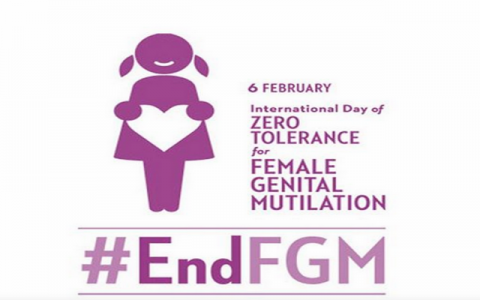
6 February is World Zero Tolerance Day against Female Genital Mutilation, established by the United Nations to raise awareness of a practice that violates human rights and has very serious consequences for the physical and mental health of the girls who undergo it.
According to figures released by the United Nations Population Fund (Unfpa) and Unicef, around the world at least 200 million women and girls alive today have suffered genital mutilation.
"Although it is mainly concentrated in 30 countries in Africa and the Middle East – reads the United Nations website - the phenomenon of female genital mutilation is a universal problem, which is also widespread in some countries in Asia and Latin America. Female genital mutilation continues to be present among immigrant populations living in Western Europe, North America, Australia and New Zealand. In 2021, the pandemic negatively and disproportionately affected women and girls, disrupting the achievement of Sustainable Development Goal 5.3. on the elimination of all harmful practices, including female genital mutilation. Unfpa estimates that 2 million more girls will be at risk of undergoing this practice by 2030. In response to this issue, the United Nations, through the Unfpa-Unicef Joint Programme, decided to integrate the fight against female genital mutilation into the humanitarian and post-crisis response. To advance the elimination of female genital mutilation, co-ordinated and systematic efforts are needed, involving whole communities and focusing on human rights, gender equality, sexuality education and addressing the needs of women and girls affected by it".
This year, the Unfpa-Unicef Joint Programme for the Elimination of Genital Mutilation launched the 2022 anniversary topic, Accelerating investment to end female genital mutilation. "Many countries are experiencing a "crisis within a crisis" due to the pandemic, which includes an increase in female genital mutilation, the United Nations explains on its Day of Action page. This is why the United Nations are calling on the global community to reinvent a world that empowers girls and women to have a voice, choice and control over their lives".
To mark the occasion, ActionAid organised the Join our CHAIN online conference, which took place on 3 February. The meeting, which was also attended by the Minister for Equal Opportunities and the Family, Elena Bonetti, was an opportunity to propose a new operational model of intervention, aimed at preventing, bringing to light, identifying and combating cases of female genital mutilation, and early and forced marriages, as well as providing assistance and protection to girls and women subjected to such harmful practices in the Milan area or at risk of undergoing them. The intervention model is available on the ActionAid website, in the dedicated news item, which also contains some data on the issue and other information.
Also worth mentioning is the online event organised by the Regional Centre for Global Health in Umbria in collaboration with Nosotras Onlus and others, which will be held on 7 February on the Zoom platform, starting at 10 a.m. The programme and information on how to participate are available on the Local Health Unit Umbria no. 2 website, on the dedicated page.
WeWorld also takes part in the celebrations. The notice posted on the organisation's website contains the verses of the poem FGM, a savage practice, written by some girls attending a primary school in Sintakara, Kenya.
Other materials and news can be found on this site under the topic Female Genital Mutilation, which can be accessed via the navigation menu "Topics".

